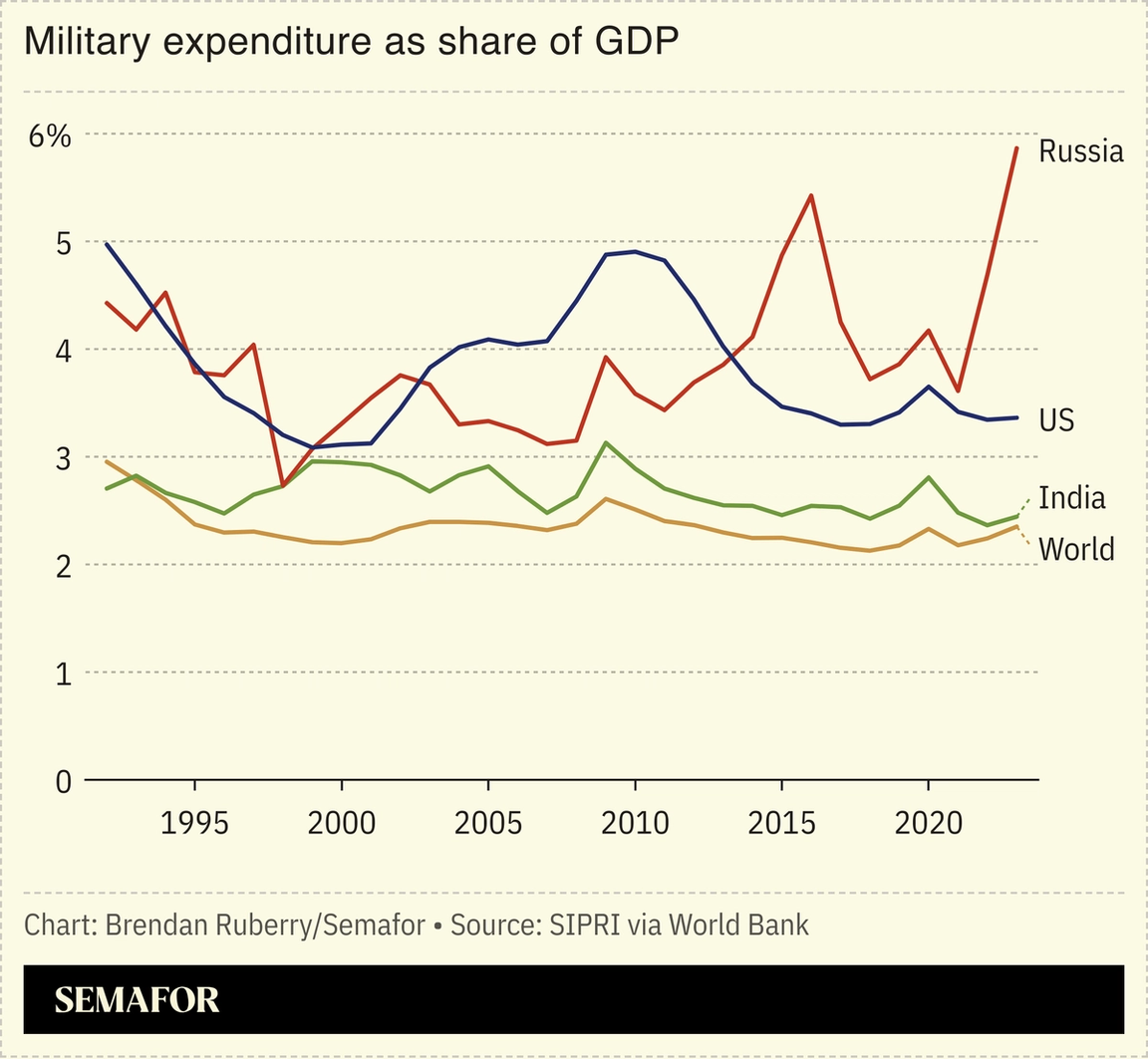 Russia’s shift to a wartime economy has given President Vladimir Putin latitude to drag out Ukraine peace talks, despite signs that economic gains are slowing. Moscow offered big signing bonuses to build up its army; wage growth persisted throughout the economy, boosting Russians’ living standards and blunting the impact of Western sanctions. “It is absolutely imperative for Russia to continue to rely on the military industry, because it [has] become the driver of economic growth,” one expert told The Wall Street Journal. But salary growth has weakened, GDP growth has slowed, and oil revenues are falling, the Financial Times reported: “The problems are piling up,” a Russian economist said, but not enough to change residents’ views on the war. |